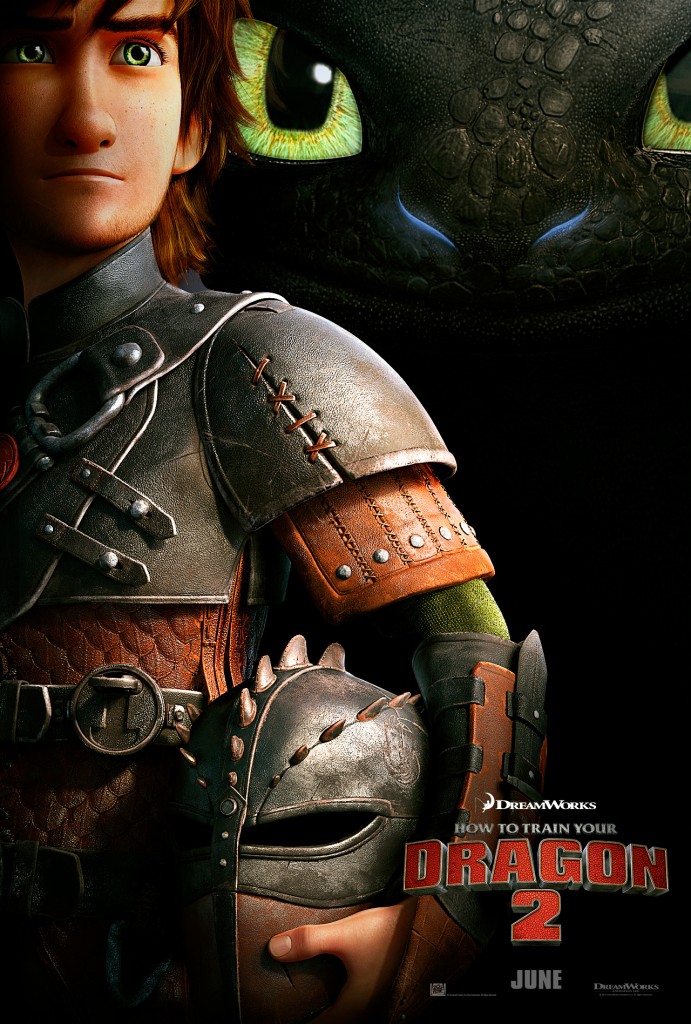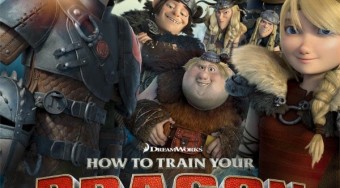Interviews
Dean DeBlois

This week, prostate the highly-anticipated sequel How to Train Your Dragon 2 arrives in theaters. I recently had the opportunity to sit down for a private interview with Dean DeBlois, this the film’s director and screenwriter (who also helmed the original feature). We talked about his hesitation about doing a sequel, health the controversy surrounding the film’s gay character, and how a tragedy in Dean’s personal life was reflected on the big screen.
John: First of all, let’s talk about the original movie. Were you surprised by the success of it when it originally came out?
Dean: Yeah, I was. I guess we really felt good about it but we didn’t know if the audience would accept it the way that they did.
John: It was a different type of animated movie.
Dean: It is. It is. It was very different for Dreamworks and it was also at that point with Eragon coming out and Reign of Fire a few years before. Like dragons weren’t necessarily a hot topic… It feels like they were a little more of a stumbling block than an aide at that point so we felt like we would have to reinvent a little bit how they would be depicted onscreen so we channeled a lot of. One of my filmmaking heroes is Hayao Miyazaki. There’s a Miyazki-type quality of having a dragon that was injured that then becomes an organic form coupled with a mechanical attribute to it so that helped a lot and bit by bit, the word of mouth started generating this momentum around the movie that kept people coming back and I think it had a lot to do with its heart. It had a daring quality and it had a lot of heart and people responded to that so I was surprised that it came back to the top of the box office five weeks into its run. That was certainly amazing and I was also surprised that it went on to outgross the movies it was being compared against in the beginning.
John: With that in mind, were you trepidatious about doing a sequel?
Dean: Definitely. As the years went on, I became more and more aware of how the fan base was growing and very expectant. It was a very fervent, vocal fan base. They didn’t like the idea of a trilogy as a whole partly because they thought like like most sequels, we would screw it up but it kept us honest and it made us really dig deep and try to tell a story that was different but part of an overall coming of age. That’s why I pitched the idea of a trilogy instead of just doing a random next sequel so that this could be another step in Hiccup’s growth and by meeting him five years later, it’s a different crossroads in his life. He’s stepping into adulthood with uncertainty and he undergoes a journey that really sort of brings him back home in the end with a renewed sense of self.
John: So the plan is to do one more movie down the line?
Dean: It’s not even down the line. I’m supposed to be writing it now.
John: Oh, okay.
Dean: So it’s definitely greenlit already. We’re making it. The third installment will bring Hiccup sort of to the end of his coming of age and end the movies where the books…the first one that’s it’s based on begins– Hiccup as a wise chief looking back at a time when there were dragons.
John: Yeah, I was gonna ask you how you match up wit the book series.
Dean: I don’t know if you knew this but when Chris Sanders and I joined [the first movie], it was fourteen months out from its release, which means they’d spent the better part of two years before that developing a very faithful adaptation of the books. We were encouraged to depart narratively from it at that point because the story of the book– the first book in the series– is quite young and so they wanted to tell a story that had the tropes of a big fantasy adventure film so we kept the spirit of it and we kept a lot of the character names, and certainly the world of Vikings of dragons and all these different personalities and attributes but we took the story itself in a different direction. It was about the first Viking to befriend a dragon and change the course of this age-old war between his clan and theirs.
John: Now, one of the big– I’d hate to say controversies– is about the Craig Ferguson ad-lib about making a character gay.
Dean: Yeah.
John: First of all, were you prepared for the interest of that aspect in the movie?
Dean: I’m sort of surprised that it comes up because it’s everywhere in the media these days. Having a gay character on a TV show, for example, is no big deal. In Paranorman, there’s a character who’s gay at the end of it. That didn’t seem to raise too many eyebrows so I think it was a nice character revelation that Craig Ferguson had added to a line that I had written. I think it’s charming and fun in the middle of a very romantic scene between Hiccup’s father and mother so it’s not gratuitous. It’s reflective of the times. What I like about animated movies is they speak to such a broad audience that I think it represents yet another aspect of our society.
John: Was there ever any hesitance about keeping that in the movie on either your part or the part of Dreamworks?
Dean: If there was, nobody had articulated it to me mostly because it’s not gratuitous and I think that the tone of our particular movie is one that is kind of fresh and bold and a bit daring so it sort of fits into that.
John: If a young person sees this movie, what lessons do you want them to learn from the film?
Dean: The movie works on two levels. I definitely try to make a movie that I want to see. Luckily, I’m a big kid and I remember the kinds of movies that I loved when I was young so in some ways, it’s an homage to The Empire Strikes Back which I thought was such a great expansion on a world and characters that I loved. For the young people, it’s rich with action and dragon personality. The continued wish fulfillment of having a dragon of your own as a pet and it speaks to the individuality of people. Something that makes you odd or different or a square peg can actually change the world if you see it as the positive that it can be so I think that speaks to everybody but I think for the adults in the audience as well, there’s a lot of the idea of forgiveness and losing yourself and finding yourself and reconciliation. These are sort of larger themes at play. Hiccup’s a character in search of who he is to become. At first he wants to be his own man and by the end of it, he realizes he has to be a man of the people and I think these are things that resonate probably with the more mature members of the audience.
John: There is a tragedy late in the movie. Was that hard to write and bring to the film especially how it happens?
Dean: Yeah, it was very organic to the story in that Hiccup has, along his path to become something, which is this person who’s going to protect his own who’s going to stand up and take on the mantle of his father and I think the tragedy is narratively to support that in a way cause he doesn’t have a crutch. He needs to decide to become it or not and I think on a personal level, it was sort of carthatic because I suffered that very same tragedy when I was a kid and I had to step up as well. I think it’s a tribute to the nobility and the sacrifice that we make for one another and it’s a right of passage that most of us have to go through at some points in our lives some of us when we’re very young.










